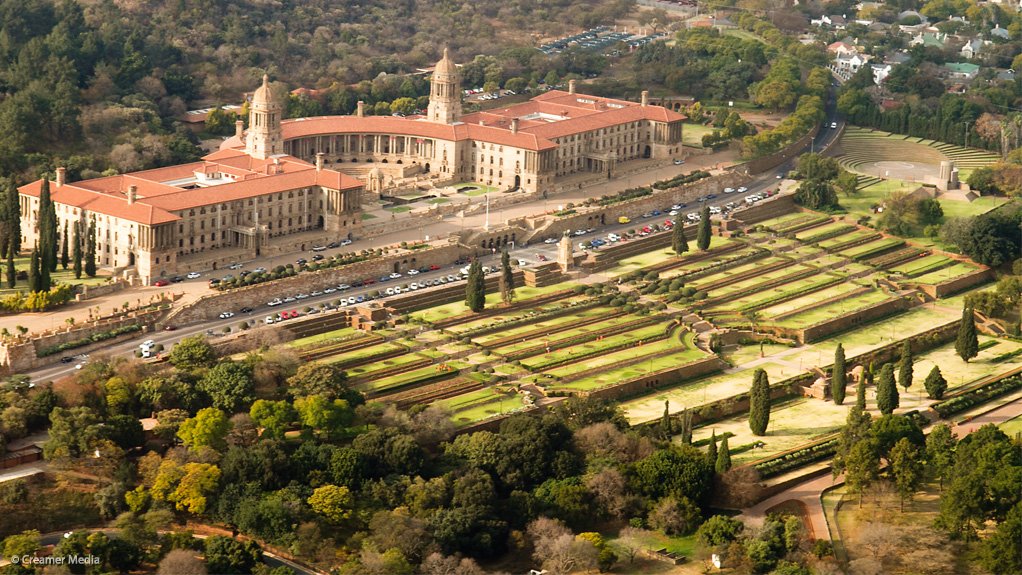The National Council of Provinces (NCOP) has approved the Electricity Regulation Amendment (ERA) Bill, which has far-reaching implications for the future structure and operation of an electricity supply industry that has hitherto been dominated by Eskom.
The Bill received support from all provinces besides the Free State, which lacked a mandate to vote, and the Western Cape, which argued that there had been insufficient time for provinces to consult their residents on the contents of the Bill.
The ERA Bill was approved by the National Assembly on March 14 and, following the approval of the NCOP, will be sent to the President for signing.
In a media release issued by Parliament following the NCOP vote it was stated that the legislation aimed to provide for additional electricity generation capacity and infrastructure, establish the duties, powers and functions of the Transmission System Operator (TSO), and provide for an open-market platform that allowed for competitive electricity trading.
“It further aims to amend the regulatory framework for the electricity industry in response to prevailing conditions in the South African electricity power system and the Department of Public Enterprises’ Roadmap for Eskom in a Reformed Electricity Supply Industry of 2019,” the statement added.
Parliament added that the Bill would now be sent to the President for assent and it had been widely suggested, but not yet confirmed, that President Cyril Ramaphosa would sign the legislation ahead of the May 29 elections.
Unlike the controversial National Health Insurance Bill, which Ramaphosa signed at a Union Buildings ceremony on May 15, the ERA has the backing of business, which has called for its urgent passage as part of initiatives and reforms that it views to be necessary to end loadshedding and place the electricity sector on a more sustainable footing.
In its response to the Bill's passing, the Solar PV industry Association (SAPVIA) urged Ramaphosa to "find his pen and sign it into law", a quip on the pen the President said he had ready for months ahead of the signing of the NHI Bill.
SAPVIA CEO Dr Rethabile Melamu said the ERA would open the market to suppliers of electricity and bring the industry closer to a competitive market.
"There are several benefits that the Bill will bring but crucially, the Bill allows for the systematic unbundling of Eskom into a transmission system operator and market operator and accelerate investment into additional generation capacity and supporting infrastructure," Melamu said, adding that the legislation would facilitate more investment into the industry.
South African Wind Energy Association CEO Niveshen Govender, meanwhile, described the approval as another step forward in South Africa’s efforts to create a dynamic, open electricity market that would contribute to energy security in the long run.
SAWEA, he said, eagerly awaited the President’s consideration, which will shape the energy landscape for generations to come.
“Key provisions of the ERA Bill, such as establishing an open market platform for competitive electricity trading and creating a TSO, are poised to unlock new opportunities for wind energy development.
“These measures should streamline grid access and facilitate more electricity transactions, enabling greater integration of new wind power into South Africa's energy mix,” Govender added.
Energy Council of South Africa CEO James Mackay said the ERA Bill was one of the critical pillars of the Energy Action Plan and had been identified and backed by business and government as a priority reform for restoring investor confidence and unlocking investment to support the country's transition to a low-carbon energy system.
"Critically, the ERA Bill unlocks the two most critical enablers of our energy transition," Mackay said.
"Firstly, an independent State-owned and run transmission network and operator that must optimally and rapidly expand grid capacity in line with the Transmission Development Plan.
"Secondly, an independent and efficient market operator that must ensure a bankable energy market that unlocks large-scale private sector investment through energy traders and aggregators."
He said an ambitious implementation period of five years had been set that, if effectively executed, would enable significant levels of investment, economic growth and job creation.
The creation of the TSO – which will be located within the National Transmission Company South Africa (NTCSA), currently being separated as an independent Eskom division and which already has its own board – is regarded as a key feature of the amendment.
While the NTCSA is expected to begin trade by July, the ERA provides a five-year period for the integration of the roles and functions of the TSO, which will oversee the market code required to replace the vertically integrated industry structure with a multimarket framework.
A draft market code is currently circulating for public comment before September 30.
The consulted version of the code is expected to be submitted to the National Energy Regulator in November for further deliberation and consultation ahead approval, with the actual code expected to come into force only from April 2026.
The other Bills passed by the NCOP on May 16 were the National Water Resources Infrastructure Agency Bill, the Marine Pollution (Prevention of Pollution from Ships) Amendment Bill, the Transport Appeal Tribunal Amendment Bill, and the Plant Health (Phytosanitary) Bill.
EMAIL THIS ARTICLE SAVE THIS ARTICLE ARTICLE ENQUIRY
To subscribe email subscriptions@creamermedia.co.za or click here
To advertise email advertising@creamermedia.co.za or click here











